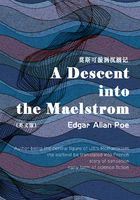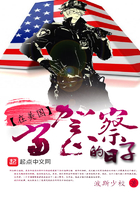Little by little, breaking out of their timidity and confusion, spurred on by their own fear, by the atmosphere of exaltation, and by darker motivations – old quarrels, buried resentments, silent envy, family hatreds – the townspeople began to speak. It was true, Don Sebastián was mean to anyone who couldn't pay for medicine in cold hard cash. If you didn't pay that same day, he kept your security no matter how you begged and pleaded. Once, for example … By midday, many Andamarcans had found the courage to walk to the middle of the square and present their complaints and recriminations and point the finger at bad neighbors, bad friends, bad kin. They grew impassioned as they made their statements; their voices trembled when they recalled the sons and daughters they had lost, the animals killed by drought and disease, and how every day brought fewer buyers, more hunger, more sickness, more children in the cemetery.
They were all condemned by a forest of hands. Many relatives of the accused did not raise their hands when it was time to vote, but they were frightened by the fermenting anger and hostility and did not dare to speak out in their defense.
The sentence was carried out by forcing them to kneel and rest their heads on the low wall around the well. They were held down while a line of neighbors filed past, smashing them with stones taken from the construction site next to the village hall. The militia did not take part in the executions. No gun fired. No knife stabbed. No machete hacked. Only hands, stones, and sticks were used, for were the weapons of the people to be wasted on rats and scorpions? By taking action, by participating, by carrying out the people's justice, the Andamarcans would become conscious of their own power. This was a destiny they could not avoid. They were no longer victims, they were beginning to be liberators.
Then came the trial of bad citizens, bad husbands, bad wives, social parasites, degenerates, whores, faggots, the shame of Andamarca, putrefying garbage that the feudal capitalist regime, supported by North American imperialism and Soviet revisionism, encouraged in order to still the combative spirit of the masses. This, too, would change. The purifying wildfire of the Revolution would burn away egotistical bourgeois individualism, and the collectivist spirit and class solidarity would flourish.
The townspeople seemed to listen more than they really listened, to understand more than they really understood. But after the events of the morning they were agitated enough, confused and bewildered enough, to take part with no hesitation in this second ritual, which they would remember, and their children and grandchildren would remember, as the stormiest in the history of Andamarca.
Se?ora Domitila Chontaza, encouraged by the exhortations of the succession of armed women and men who took turns speaking, was the first to point an accusing finger. Every time her husband took a drink he kicked her across the floor and called her 'devil's shit.' Her husband, a hunchback with hair like a porcupine's, swore it wasn't true. Then he contradicted himself and whined that when he drank, an evil spirit took possession of his body, the anger came, and he had to get rid of it by beating her. The forty strokes left his curved back bloody and swollen. Fear more than physical pain was behind his vows that he would never taste another drop of alcohol, his abject 'Thank you, thank you very much' to each of the neighbors who beat him with whips made of leather or animal gut. His wife dragged him away to put poultices on his wounds.
Some twenty men and women were tried, sentenced, whipped or fined, obliged to return their ill-gotten gains, to indemnify those whom they had overworked or deceived with false promises. How many accusations were true, and how many were inventions dictated by envy and rancor, the result of an excitation in which they all felt compelled to take part by revealing the cruelties and injustices they had suffered? Not even they could have answered the question when, some time in the middle of the afternoon, they put Don Crisóstomo on trial. He had been the bell ringer back in the days when the tower of the Andamarca church had a bell and the church had a priest, and he was accused by a woman who had caught him just outside the village pulling down a boy's trousers. Others confirmed the charge. It was true, he couldn't keep his hands to himself, he was always touching the boys and trying to get them inside his house. One man, his voice breaking with emotion, confessed in an electric silence that when he was a boy Don Crisóstomo had used him the way you use women. He had never had the courage to speak before because he was ashamed. Others, who were right here, could tell stories like his. The bell ringer was sentenced to a beating with sticks and stones, and his corpse joined the bodies of those who had been on the list.
It was growing dark when the trials ended. Don Medardo Llantac took advantage of that moment to move away the slab covering the grave of his cousin Florisel, crawl out of the cemetery, and run through the countryside like a soul pursued by the devil, heading for Puquio. He reached the provincial capital a day and a half later in a state of exhaustion, his eyes still full of horror, and reported what had happened in Andamarca.
Fatigued, confused, not looking into one another's faces, the Andamarcans felt the way they did after the fiesta for their patron saint, after three days and nights of drinking all they could drink, and eating, dancing, stamping their heels, fighting, praying, not sleeping – it was a struggle to accept the idea that the great dazzling explosion of unreality was over, that they had to go back to their daily routines. But now they felt even greater dislocation and deeper malaise as they faced the unburied corpses swarming with flies and beginning to rot under their very noses, the bruised backs of those whom they had whipped. They all suspected that Andamarca would never be the same.
The tireless members of the militia continued to take turns speaking. Now it was time to organize. There could be no victory for the people without the iron-willed, enduring participation of the masses. Andamarca would be a support base, one more link in the chain that already ran the length of the Cordillera of the Andes and was sending out branches to the coast and the jungle. Support bases were the rear guard for the vanguard. Important, useful, indispensable, they existed, as their name indicated, to support the fighters: to feed them, heal them, hide them, dress them, arm them, to give them information about the enemy and provide replacements for those who made the ultimate sacrifice. Everyone had a job to perform, a grain of sand to contribute. They should subdivide by neighborhoods, multiply by streets, blocks, families, add new eyes and ears, legs, arms, and brains to the million already at the disposal of the Party.
Night had fallen when the neighbors elected five men and four women to be in charge of organization. To advise the residents and act as liaison to the high command, Comrade Teresa and Comrade Juan would remain in Andamarca. They should assimilate them, behave as if they had been born here and had buried their dead here.
Then they cooked a meal and ate and went to various houses and slept alongside the Andamarcans, many of whom, bewildered, disbelieving, uncertain, frightened at what they had done, seen, and heard, did not close their eyes that night.
They assembled them again at dawn. From among the younger ones they chose some boys and girls for the militia. They sang their hymns, shouted their victory cries, waved their red flags. Then they broke into the units they had been in when they entered the village, and the neighbors saw them separate and move away, some crossing the Negromayo River and others heading toward Chipao and Pumarangra, disappearing among the terraces of green fields beneath the lead-colored ocher of the mountains.
The patrol of National and Civil Guards reached Andamarca forty-eight hours after the Senderistas left. They were under the command of a young, muscular second lieutenant from the coast who had a crew cut and wore dark glasses; his men addressed him only by his nickname, Trigger. With them came the lieutenant governor, Don Medardo Llantac, who had put on years and taken off kilos.
The corpses were still in the square, unburied. The Andamarcans lit a bonfire to keep away the vultures, but despite the flames, dozens of turkey buzzards mounted guard around the bodies, and there were more flies than in the butcher shop on the days they slaughtered a cow. When Don Medardo and the second lieutenant asked why they had not buried the dead, they did not know what to say. No one had dared to take the initiative, not even the victims' relatives, for they were paralyzed by a superstitious terror of bringing down the militia again or unleashing another catastrophe if they touched the bodies, even to bury them – these neighbors whose heads, faces, and bones they had just crushed as if they were mortal enemies.
Since there was no justice of the peace – he was one of those who had been executed – the second lieutenant had Don Medardo Llantac himself record what had happened, and ordered several residents to sign the document as witnesses. Then they carried the dead to the cemetery, dug graves, and buried them. Only then did their relatives react with normal grief and anger. The widows, children, brothers, sisters, nieces, nephews, and stepchildren wept, embraced, cursed, and raised their fists to heaven, asking for revenge.
After the square was disinfected with buckets of creosote, the second lieutenant began to demand explanations. Not in public, but behind closed doors in the community hall, calling for the families, one by one. He had posted sentries on the roads out of town and given strict orders that no one was to leave without his permission. (But Comrade Juan and Comrade Teresa escaped as soon as they caught sight of the patrol approaching along the Puquio road.)
The relatives went in and came out after fifteen minutes, after half an hour, hanging their heads and crying, confused and uncomfortable, as if they had said more or less than they should have, and regretted it.
In the village the atmosphere was gloomy, the silence grim. The townspeople insisted on concealing their fear and uncertainty behind angry faces and a refusal to speak, but they were betrayed by their sleepwalker's gait as they paced the straight little streets of Andamarca far into the night. Many women spent the day praying and reciting litanies in the dilapidated church on the square whose roof had caved in during the last earthquake.
The second lieutenant questioned people all day and half the night without a break, not even for lunch – he had a bowl of soup with dried beef brought in, and he ate as he carried out his investigations – and one of the few things the residents knew in the course of that extraordinary second day was that a frenetic Don Medardo Llantac remained at the officer's side, giving him information about those who came in to make statements, meddling in the interrogations, demanding names and precise details.
That night, Andamarca's false civility shattered. Arguments, disputes, accusations, insults, and threats erupted in the houses, on the corners, in the streets, all around the square, where everyone congregated to spy on those leaving the community hall. Fistfights broke out and there were shoving and scratching matches. The National Guard and Civil Guard did not intervene, either because they had been instructed not to or because they had received no orders and did not know how to respond to the unbridled hostility of a free-for-all. They watched with contempt or indifference and did not lift a finger to separate the Andamarcans as they called one another murderers, accomplices, terrorists, slanderers, traitors, cowards, and then raised their hands against their neighbors.
Those who were questioned had to tell everything – doing their best to lessen their own responsibility by exaggerating the responsibility of others – and the second lieutenant was able to reconstruct in broad strokes what had occurred at the trials, because on the following day the five men and four women named as leaders of the support base were locked up in the town hall.
At midmorning the second lieutenant assembled the Andamarcans in the village square – turkey buzzards still prowled the corner where the executions had taken place – and spoke to them. They did not all understand the officer's rapid coastal Spanish with its dropped consonants, but even those who missed a good part of his speech understood that he was berating them. For collaborating with the terrorists, for taking part in this parody of justice, for carrying out a grotesque, criminal massacre.
'All of Andamarca should be tried and punished,' he repeated several times. Then, with patience, though not showing any signs of understanding, he listened to the residents who had the courage to formulate obscure excuses: it wasn't true, no one had done anything, it had all been the work of the terrucos. They had threatened them, se?or. They had forced them, they had put machine guns and pistols to their heads and said they would slaughter the children like pigs if they didn't pick up the stones. They contradicted and interrupted each other, disagreed with each other, and eventually accused and insulted each other. The second lieutenant watched them with a pitying look.
The patrol remained in Andamarca all day. That afternoon and evening the National Guard and Civil Guard carried out searches and confiscated jewelry, ornaments, any objects that seemed valuable, and the bags and packets of money they found hidden under mattresses and in the false bottoms of trunks and wardrobes. But none of the neighbors denounced the looting to the second lieutenant.
The next morning, when the patrol was preparing to leave, taking the prisoners with them, Don Medardo Llantac and the officer argued in front of the residents. The lieutenant governor wanted a few men from the patrol to remain in town. But the second lieutenant had been ordered to bring the entire patrol back to the provincial capital. The villagers had to organize their own defense and set up squads to protect the streets.
'And what will we do for weapons?'Medardo Llantac shouted. 'We'll have sticks and they'll have rifles. Is that how you expect us to fight them?'
The second lieutenant replied that he would talk to his superiors. He would try to convince them to reopen the Civil Guard post that had been closed for almost a year. Then he left with the prisoners, who were tied together in single file.
After a time, the relatives of the nine who had been arrested went to Puquio, but the authorities could not tell them anything. There was no record of a group of prisoners from Andamarca in any police station or any office of the political-military command. As for the young second lieutenant whose nickname was Trigger, he had probably gone elsewhere, since he was not one of their officers and nobody in Puquio knew him. By then Don Medardo Llantac and his wife had left without telling even his mother or his children where they were going.
*
'I know you're awake and dying to tell me what happened,' said Lituma. 'Okay, Tomasito, tell me.'
The truck drove into Huánuco at dusk, twenty hours after leaving Tingo María. They'd had two flat tires: the road was badly rutted by the rains, and Tomás climbed down to help the driver, a Huancayan who didn't ask indiscreet questions. At a checkpoint on the outskirts of Acomayo, as they hid among sacks and crates of fruit, they heard him say 'None' when the Civil Guard asked how many passengers he was carrying. They made two more stops to have breakfast and lunch at shabby little taverns along the highway, and Tomás and Mercedes got down, too, but did not talk with the driver. He dropped them off across from the Central Market.
'I thanked him for not giving us away at the Acomayo checkpoint,' said Tomás. 'We had told him we were running away from a jealous husband.'
'If you're running away from something else too, don't stay around here,' the driver advised, instead of saying goodbye. 'All the coca from the jungle passes along this highway, and Huánuco is full of stool pigeons on the lookout for dealers.'
He waved and drove away. It was dark, but the streetlights had not yet been turned on. Many of the stalls in the market were closed; at the ones that were still open, people were eating by the dim light of candles. The place smelled of oil, frying food, and horse droppings.
'I feel like I have bruises on every bone and muscle,' said Mercedes. 'I'm stiff and tired. But most of all I'm hungry.'
She yawned and rubbed her arms. Her flowered dress was covered with dirt.
'Let's find a place to sleep,' said Carre?o. 'I'm half dead, too.'
'Damn, that's pretty cute,' whispered Lituma. 'To sleep or to do something else, Tomasito?'
They asked the people who were sipping steaming bowls of soup and were given the addresses of a pensión and a small hotel. They had to step carefully, for the ground was covered with sleeping beggars and tramps, and on the dark streets enraged dogs leaped out to bark at them. They decided against the Pensión Lucinda because it was next to a police station. Three blocks farther on, forming the street corner, they found the Hotel Leoncio Prado, a two-story building with adobe walls, a corrugated tin roof, and little false balconies. There was a restaurant with a bar on the ground floor.
'The woman at reception asked me for my voter's identification but didn't ask Mercedes, and she made us pay in advance,' said Tomás, lingering over the details. 'She didn't seem to care that we weren't carrying suitcases. She had us wait in the hallway while she got the room ready.'
'Just one room?' Lituma exulted. 'Just one little bed for the two of you?'
'The restaurant was empty,' the boy went on, not hearing, drawing out his story. 'We ordered sodas and some soup. Mercedes was yawning and kept rubbing her arms.'
'Do you know what I'd regret most if the terrucos killed us tonight, Tomasito?' Lituma interrupted. 'Having to leave this life without seeing a naked broad again. I've felt like a eunuch ever since I set foot in Naccos. It doesn't seem to bother you much, remembering your Piuran is enough for you, isn't it?'
'All I need now is to get sick,' Mercedes complained.
'That was an excuse,' Lituma protested. 'I hope you didn't believe her.'
'It's because the truck was so uncomfortable. You'll feel better after a little soup and a good sleep,' the boy assured her.
'I hope so,' she replied. And sat with her eyes closed, shivering, until they brought the food.
'And that meant I could look at her all I wanted,' said Tomasito.
'So far, I haven't been able to picture her,' said Lituma. 'I still can't see her. You saying "She's terrific-looking," "She's a knockout" isn't any help. At least give me few details.'
'A round little face, cheeks like two apples, full lips, a nice nose,' Tomás recited. 'A little nose that quivered when she talked, sniffing like a puppy's. She was so tired she had dark circles under those long eyelashes.'
'Damn, you had it worse than a love-sick calf,' Lituma said in amazement. 'And you still do, Tomasito.'
'Even though her hair was messy, even though her makeup had worn off and she was dirty from the trip, she didn't look ugly,' the boy insisted. 'She was still real pretty, Corporal.'
'At least you have memories of Mercedes to comfort you,' Lituma complained. 'I didn't bring any from Piura. Not a single girl in Piura or Talara misses me, not a single woman in the world for me to miss.'
They had the soup in silence, and then they were served breaded steak and rice, which they had not ordered. But they ate it all the same.
'Suddenly her eyes filled with tears, even though she was trying not to cry,' said Tomás. 'She was trembling, and I knew it was because of what could happen to us. I wanted to comfort her, but I didn't know how. The future looked black to me, too.'
'Skip that part and get to the bed,' Lituma pleaded.
'Dry your eyes,' said Carre?o, handing her his handkerchief. 'I won't let anything happen to you, I swear it.'
Mercedes wiped away the tears and did not speak until they had finished eating. Their room was on the second floor, at the end of the hall, and the beds were separated by a wooden bench that served as a night table. The lightbulb dangled from a cord draped in cobwebs, and it barely lit the faded, uneven walls and the floorboards that creaked under their feet.
'The manager gave us two towels and a piece of soap,' Tomasito continued, relishing every detail. 'She said that if we wanted to shower we should do it now because there was no water during the day.'
She walked out and Mercedes followed, with a towel over her shoulder. She came back a good while later, and the boy, who was lying on the bed as taut as a guitar string, gave a start when he heard her come into the room. She had the towel wrapped around her head like a turban, her dress was unbuttoned, and she was carrying her shoes.
'A great shower,' he heard her say. 'The cool water revived me.'
He picked up the other towel and went to shower, too.
'What an asshole!' Lituma was indignant. 'What the hell were you waiting for? Suppose she fell asleep?'
There was no shower head, but the water was strong and cool. Tomás soaped and rubbed his body and felt his weariness lifting. He dried himself, put on his shorts, and wrapped the towel around his waist. The light in the room was turned off. He left his clothes on the bureau, where Mercedes had folded hers, felt his way to the empty bed, and lay down under the spread. His eyes gradually grew accustomed to the dark. Uneasy and overwrought, he strained his ears, trying to hear her. She was breathing slowly, deeply. Was she asleep already? He thought he could smell her body, there, so close to him. Tomás was restless, and took a deep breath. Should he go to see his godfather, should he try to explain? 'This is how you repay everything I've done for you, you piece of shit.' He would have to leave the country, somehow.
'I thought about everything and nothing, Corporal.' His adjutant's voice trembled. 'I felt like smoking but didn't get up, so I wouldn't wake her. It was so strange to be lying next to her. So strange to think, "If I stretch out my hand, I can touch her."'
'Get on with it,' Lituma grumbled. 'You have me on pins and needles, Tomasito.'
'Did you do it because you liked me?' Mercedes asked suddenly. 'When you picked me up at the Tingo María airport, with the fat man? Did you notice me then?'
'I saw you before that,' Carre?o whispered, feeling as if talking made his mouth hurt. 'Last month, when you went to Pucallpa to spend the night with Hog.'
'You were his bodyguard in Pucallpa? That's why I thought your face looked familiar when I saw you in Tingo María.'
'In fact, she didn't remember that I had picked her up on the first trip, too,' said the adjutant. 'That I was the one standing guard all night in Pucallpa, in that house between the river and the woods. Listening to him beat her. Listening to her beg.'
'If this doesn't end with some fucking, I'm going to beat you,' Lituma warned.
'Sure, that's why your face looked familiar, that's it,' she went on. 'So it wasn't disgust and it wasn't religion that made you go crazy. You'd already noticed me. It was because you liked me. You were jealous. Is that why you shot him, Carre?ito?'
'I was blushing so hard my face burned, Corporal. "If she goes on talking like this, I'll slap her mouth shut," I thought.'
'You fell in love with me,' Mercedes declared, half annoyed, half pitying. 'Now I get it. When men fall in love, they'll do anything. Women are colder.'
'You think you're so much because you've been around, because you're experienced,' the boy finally responded. 'I don't like it when you treat me like I was still in short pants.'
'That's exactly what you are, Carre?ito. A kid in short pants.' She laughed and then became serious. She continued talking, pronouncing her words carefully. 'But if you liked me, if you fell in love with me, why haven't you told me? Now that I'm with you, I mean.'
'She was absolutely right,' exclaimed Lituma. 'Why didn't you do anything? What were you waiting for, Tomasito?'
The sound of frantic barking on the street made her stop talking. They heard 'Shut up, you shits' and a stone hitting something. The dogs calmed down. The boy, his entire body covered in perspiration, saw her stand up and walk around the bed. Seconds later, Mercedes's hand was buried in his hair. She began to play with it, very gently.
'What are you saying?' Lituma's voice choked.
'Why didn't you go straight to my bed when you came back from the bathroom, Carre?ito? Wasn't that what you wanted?' Mercedes's hand moved down from his hair to his face, stroked his cheeks, and came to rest on his chest. 'It's beating so hard! Boom boom boom. You're so strange. Were you embarrassed? Do you have a problem with women?'
'Wh-wh-what?' Lituma repeated, sitting up in the darkness, peering at Tomasito.
'I'd never take advantage of you, I'd never hit you,' the boy stammered, seizing Mercedes's hand, kissing it. 'Besides …'
'You're lying,' Lituma repeated, incredulous. 'It can't be, it can't be.'
'I've never been with a woman,' the boy confessed at last. 'You can laugh if you want.'
Mercedes didn't laugh. Carre?o felt her sit up and lift the spread, and he moved over to make a place for her. When he felt her body next to his, he embraced her.
'A virgin at twenty-three?' Lituma said. 'My boy, I don't know what you're doing in the Civil Guard.'
As he kissed her hair, her neck, her ears, he heard her say very quietly: 'I finally think I'm beginning to get it, Carre?ito.'
4
Were they making any progress on that highway? Lituma had the impression it was moving backward instead. In the months he had been here, there had been three work stoppages, and in all of them the same process was repeated like a broken record. The project was going to be halted at the end of this week, or this month, the government had already given notice to the construction company, a union meeting was called, and the laborers took over the installations and equipment and demanded guarantees. Nothing happened for a period of time. The engineers left and the camp remained in the hands of the foremen and the paymaster, who socialized with the strikers and shared the communal meal prepared at dusk in the empty field surrounded by barracks. There was no violence, and the corporal and his adjutant never had to intervene. The work stoppages would end mysteriously, without defining the future of the highway. The company, or the ministerial representative sent to mediate the dispute, would agree not to fire anyone and to pay the workers for the days they had been on strike. Work was resumed in slow motion. But Lituma always thought that instead of picking up where they had left off, the laborers retraced their steps. Because of landslides on the hills where they were blasting, or because flooding after the rains had washed away the track and destroyed the roadbed, or for whatever reason, the corporal had the impression that they were still excavating, dynamiting, steamrolling, and laying down layers of gravel and tar in the same section they had been working on when he first came to Naccos.
He was on a rocky elevation at the foot of a snowfield, a kilometer and a half from the camp, and down below, in the clean dawn air, he could see the tin roofs of the barracks gleaming in the early-morning sun. 'Near the mouth of the abandoned mine,' the man had told Tomasito. There it was, partially obscured by rotting beams that had once marked the entrance to the shaft but had collapsed, and by rocks and boulders that had rolled down from the peak and now blocked three-quarters of the opening.















